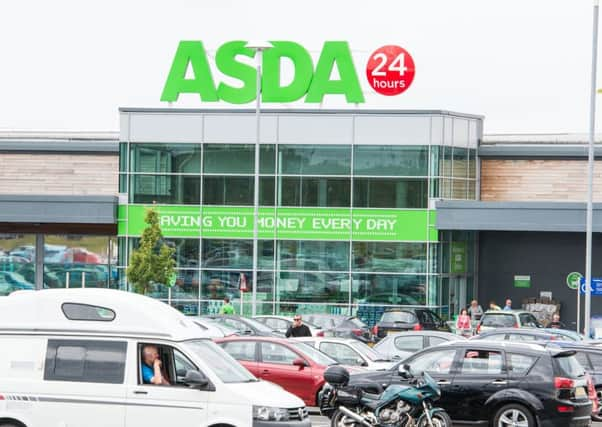Martin Flanagan: Asda's only success is slowing the decline
This article contains affiliate links. We may earn a small commission on items purchased through this article, but that does not affect our editorial judgement.


It is the twilight zone of corporate recovery, neither one thing or the other. You can hardly blame the City for being unexcited by basically being told by a retailer, in effect, that we are still in deep trouble but we are not as bad as we were.
• READ MORE: Asda sees positive momentum despite fresh sales fall
Advertisement
Hide AdAdvertisement
Hide AdAsda, the most struggling of the big four supermarkets, is in that position now. Its latest trading quarter shows a 2.8 per cent decline in like-for-like sales growth. That is its 11th consecutive quarter of decline, even though slightly slowed from the 2.9 per cent fall in the previous three months.
“Bear with us, we are getting there,” may be a hoary cliche. But it became so because it is a inescapable rite of recovery passage for many businesses – that, or they fail.
Very few recover from serious trading malaise with a handspring from the sickbed. Instead, recovery begins with stopping the rot. It then moves through sharper focus and implementation of initiatives to at first instigate a slowdown in sales haemorrhaging before moving on to incremental growth again. It is only at that stage that a retailer can hope to progress to any eye-catching upturn in its fortunes.
Asda only has to look at two of its big four rivals, Sainsbury’s and Morrisons, to see they have been through this process. Yes, both are further along the road to recovery than Asda now.
But both were also flailing badly against the incursions of the discounters Aldi and Lidl and food deflation, in Tesco’s case exacerbated by overweening international ambition, in Morrisons dilatory entry into online and convenience stores. Tesco and Morrisons also had to go through the limbo of addressing chronic sales falls, with the only early signs of “success” being slowing those declines marginally.
Looked at somewhat cynically, you could say the phase Asda is going through now is the one that buys begrudged time with shareholders, even if there are relatively few in the UK given its ownership by Walmart of the US.
Advertisement
Hide AdAdvertisement
Hide AdAsda chief executive Sean Clarke is probably just hoping to cut the rate of sales decline further over the next two quarters or more, before daring to even look for the sunlit uplands of resumed growth.